How South African families celebrate Heritage Day with food, outfits, and traditions
Heritage Day in South Africa is celebrated every year on 24 September. How South African families celebrate Heritage Day shows the nation’s rich cultures and traditions. Families gather to share food, enjoy music and art, and wear traditional clothing. The day also honours history and promotes unity while reflecting on the nation’s journey beyond apartheid.
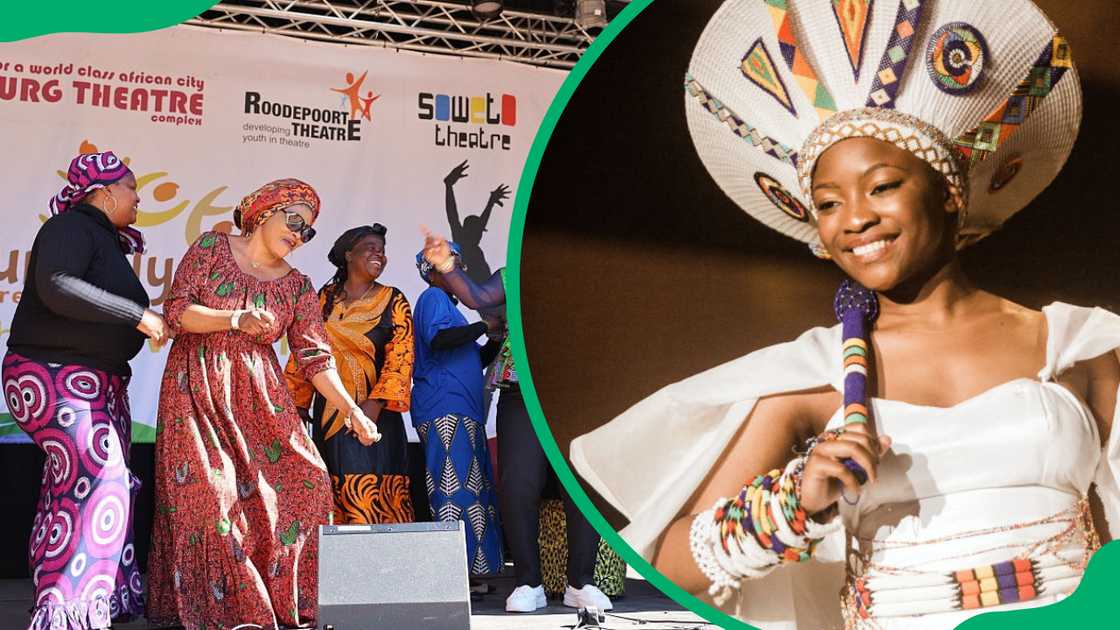
Source: Getty Images
TABLE OF CONTENTS
Key takeaways
- Families across South Africa come together on Heritage Day to share food, music, and wear traditional clothing.
- The holiday also honors history, promotes reconciliation, and encourages pride in local traditions.
- Heritage Day reflects the nation’s cultural diversity and unity.
How South African families celebrate Heritage Day
Many households prepare a braai, which has become a symbol of unity across South African cultures. Others mark the day by attending community events, visiting heritage sites, or telling stories that pass traditions from one generation to another.
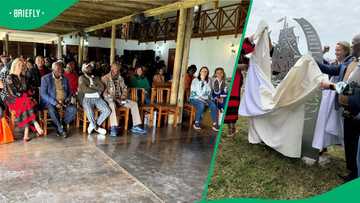
Read also
“South Africa and Ukraine share a history”: Luxe Eastern Cape hotel honours connection with new sign
The celebrations create space for families to honor their own roots while also embracing the wider idea of unity in diversity. Here is more about the occasion as you plan on celebrating Heritage Day in 2025 and beyond.
What is Heritage Day?
Heritage Day is a national holiday in South Africa that celebrates the country’s diverse cultures, traditions, and history. Families observe the day through food, music, traditional clothing, and storytelling. This creates space to honor their roots while embracing unity in diversity.
The date, 24 September, also marks the death of King Shaka, the Zulu leader who united many clans. For years, it was known as Shaka Day in KwaZulu-Natal. Heritage Day in South Africa in 2025 serves as both a reminder of history and a celebration of culture.
Changes that were made to Heritage Day
In 1995, Heritage Day in South Africa was almost removed from the Public Holidays Bill. Members of the Inkatha Freedom Party opposed this, pushing for recognition of the date. As a compromise, the government kept it and gave it a broader meaning as a celebration of South African culture.
In 2005, media campaigns promoted the idea of “National Braai Day.” The braai was seen as a unifying tradition that crossed cultural lines. Although not official, the name became popular. Today, families still use the braai as a symbol of togetherness, both at home and in community events.
Heritage Day food
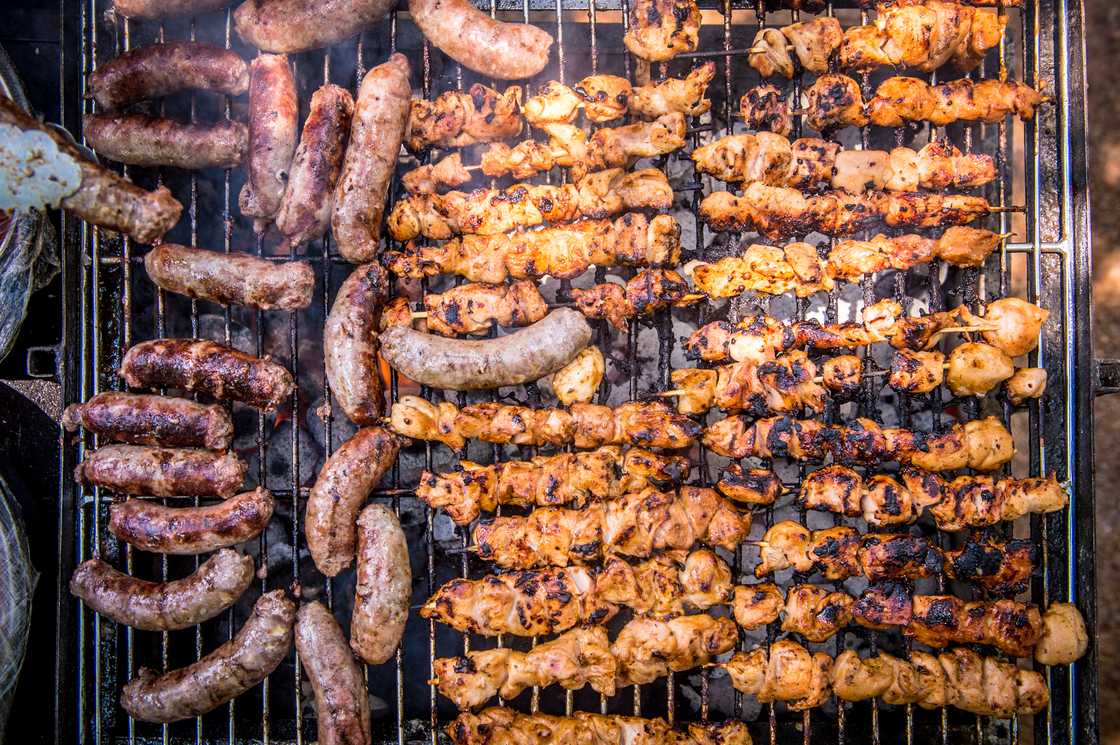
Source: Getty Images
On Heritage Day in South Africa, food plays a central role in the celebrations. Families gather around the braai, a cherished tradition where meat is grilled over coals. This communal activity brings people together and highlights South Africa’s rich culinary heritage.
In addition to the braai, families prepare a variety of traditional dishes. These include pap and chakalaka, bobotie, pumpkin fritters, melktert, Cape Dutch koeksisters, curried samp and beans, masala chicken, and easy mealie bread.
Each dish reflects a different part of South Africa’s culinary heritage. Desserts and sweets complete the feast. In 2025, Braai Day South Africa continues to unite communities. Families gather to share meals, stories, and laughter, celebrating culture and togetherness.
Heritage Day dress-up ideas in South Africa
Heritage Day is a vibrant part of South Africa’s heritage celebration. Dressing in traditional wear is a meaningful way to honor culture. Each community brings its own style, reflecting history and customs.

Read also
"Paradise does not exist": Best-ranked country to move to for work-life balance, SA debates
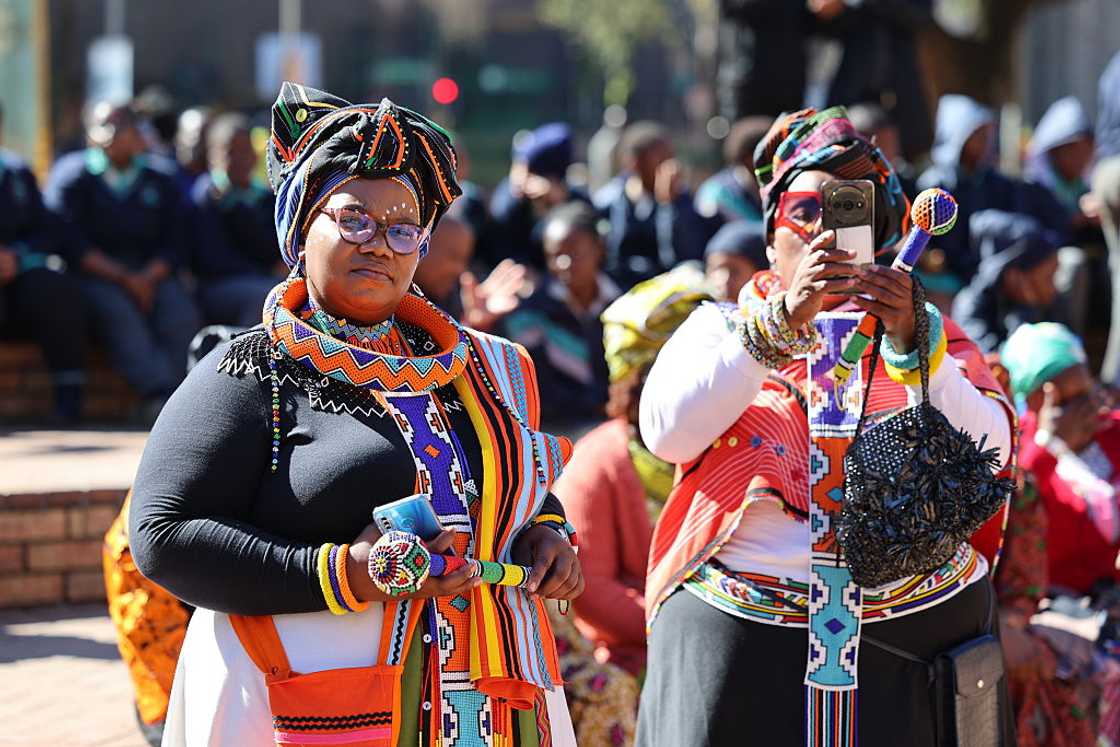
Source: Getty Images
Xhosa women often wear the umbhaco, a long skirt and apron made from printed or embroidered fabrics. They accessorize with ithumbu, beaded necklaces, and iqhiya, a beaded headpiece. Zulu women wear the isicholo, a flared disk-shaped hat, with the isidwaba, a thick cowhide skirt softened with fat and charcoal. Men wear the isinene and ibheshu aprons to cover the front and back.
Basotho people wear the seshoeshoe dress and the Basotho blanket draped over the shoulders. Afrikaner men may wear kilts, while women choose dresses and head wraps, completed with beads around the neck.
In 2025, these outfits will remain central to the heritage celebration, showcasing the rich diversity of South African cultures.
Heritage Day quotes
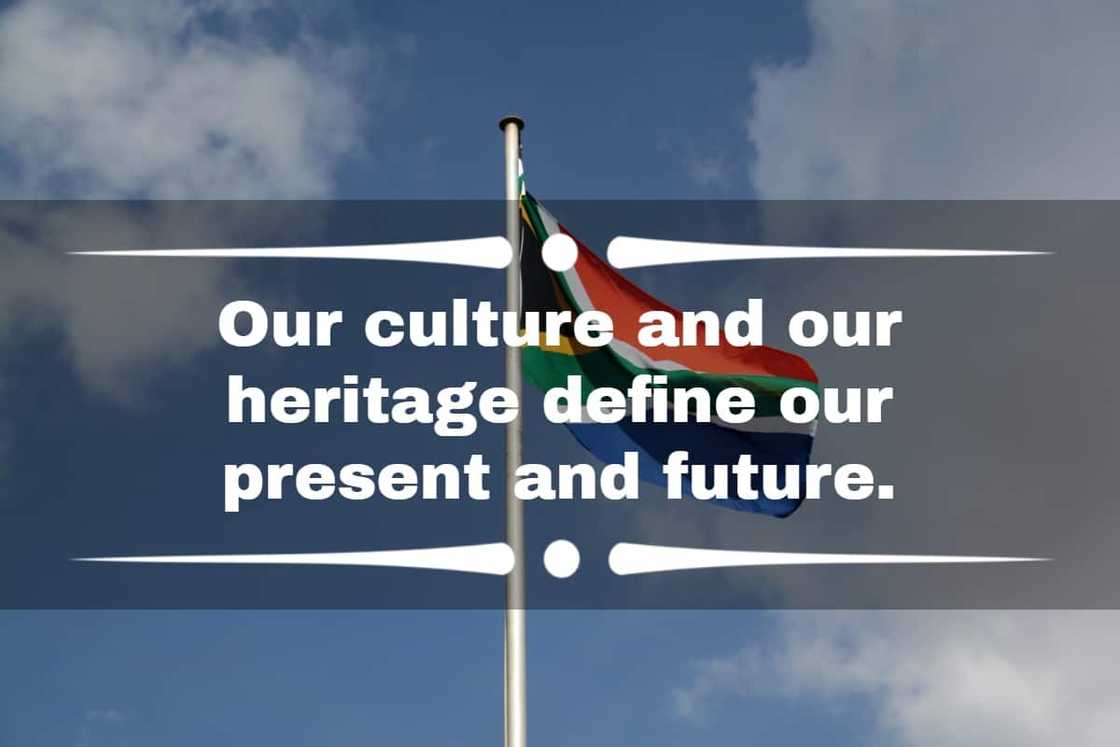
Source: UGC
Heritage Day is an important day when citizens recognize and celebrate their social conventions. Aside from the Heritage Day speeches that are always given, some quotes and sayings can help you connect with and understand the day's significance. They include:
- Heritage is the most precious thing we have.
- Let us join hands to preserve our heritage.
- Be proud of Indian heritage, as it has a lot to offer.
- Let us show some responsibility towards our heritage.
- Our culture and our heritage define our present and future.
- Save your heritage from damage, as it is the most precious asset.
- A rich cultural heritage depends on the ability of people to maintain their distinctiveness and unique identities.
- World Heritage Day aims to identify the beauty of monuments and preserves their identity from the roots.
- Memory is the fortune spot of the psyche where the monuments of the psyche are stored and preserved.
- We must never forget our roots, and our heritage is the root that gives us strength and makes us unique. Wishing you a very happy Heritage Day.
Heritage Day poems
Poetry has been used by South Africans to express their joy and to highlight the significance of Heritage Day. Below is a poem by Nikita Tshawe.
First stanza
Sons of the soil.
Daughters of the soil.
Wake up and rejoice, for it's the day of your heritage.
Celebrate your culture, for it is your privilege.
Second stanza
You are Africa; Africa is you.
A nation so diverse and true.
A real rainbow nation.
Deeply rooted in our tradition.
Third stanza
Nna ke mo Tswana, ebile ke motlotlo ka bo Tswana bame.
Nna ke mo Pedi, ebile ka ikgantsha ka go nna mo Pedi.
Mna ndi ngum Xhosa, ubona nje, ndiyazi dla ngo buXhosa bam.
Mina ngi ngum Zulu qobo, futhi ngiyazi qhenya.
Fourth stanza
On this day, remember who you are.
On this day, commemorate who you are.
Take pride in your true identity.
Let there be peace and serenity.
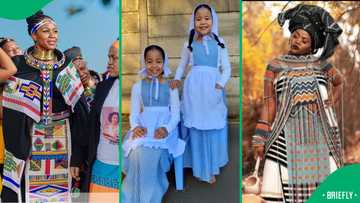
Read also
"We are proud indigenous Africans": Traditional clothing of South African tribes sparks debate
In South Africa our land.
Together may we all stand.
Fifth stanza
Le ga ole moTswana wa Afrika.
Noba ungu m'Xhosa wase Afrika.
Le ha ole mo Sotho wa Afrika Borwa.
Are rataneng. Masi thandaneni.
Sixth stanza
On this day, speak your mother tongue.
On this day, sing your clan song.
A moTswana eme a kgibe.
UmXhosa maka phakame axhentse.
UmZulu maka sukume agide.
A moPedi a emelle bine.
Seventh stanza
Sons of the soil.
Daughters of the soil.
Wake up and rejoice, for it's the day of your heritage.
Celebrate your culture, for it is your privilege.
Why is Heritage Day important?
The day is important because it promotes a shared national identity. It encourages reconciliation and shows that differences can be strengths, not sources of conflict. Families and communities use the day to celebrate culture, history, and togetherness.
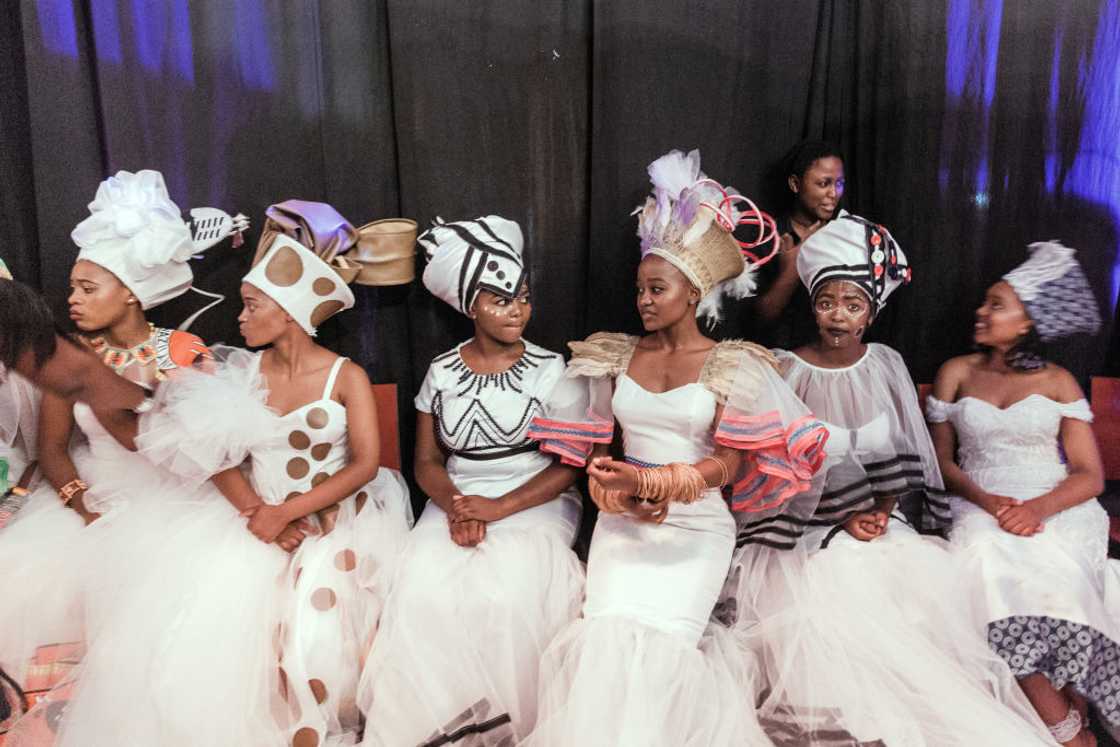
Source: Getty Images
This vision led President Nelson Mandela and his government to declare September 24th a national heritage celebration. Mandela believed South Africans’ rich and diverse cultural heritage could help rebuild the nation. The day also reminds the country to confront the injustices of apartheid and to unite in creating a more inclusive future.

Read also
South African police men celebrate Pakistan's Independence Day with Pakistani community in Mzansi
How is Heritage Day celebrated in churches?
Heritage Day's pictures and events reflect the country's culture and history. While this month is about having fun and enjoying the culture, churches also observe it by serving and encouraging Christians to do good.
Various churches organize various activities for children and the elderly. Some go so far as to share and assist the less fortunate to show love and care for those who may not be able to celebrate this day.
When is Human Rights Day in South Africa?
Human Rights Day in South Africa is observed on 21 March each year. The day honors those who fought for human rights during apartheid. It also reminds citizens to protect freedom, equality, and justice in their communities.
When is Freedom Day in South Africa?
The annual Freedom Day is celebrated on 27 April. It marks South Africa’s first democratic elections in 1994. The day commemorates the end of apartheid and celebrates the nation’s hard-won freedom.
Are liquor stores open on Heritage Day?
Yes, most businesses are closed on this day, except major retailers such as grocery stores. It is regarded as an important day that everyone should commemorate.
What activities do we do on Heritage Day?
This day can be celebrated by dancing to Soweto music, cooking and sharing various meals, reciting poems, attending church functions and gatherings, and simply sharing good times as a community or family.
How South African families celebrate Heritage Day shows the nation’s unity in diversity. Families gather to share food, wear traditional clothing, and enjoy music and dance. They tell stories, visit heritage sites, and pass culture to the next generation. Heritage Day is a time to honor history, embrace traditions, and celebrate South Africa’s rich cultural tapestry.
Briefly.co.za recently published the article, Youth Day in South Africa 2025: Why do we celebrate this day? Youth Day is a public holiday in South Africa celebrated annually. The holiday honours young adults who opposed the apartheid regime and helped Mzansi attain independence.
The police killed and jailed many Black young people during the 1976 Soweto Uprising riots led by Black South African high schoolers. Youth Day in South Africa 2025 will be marked on 16 June.
Source: Briefly News

Peris Walubengo (Lifestyle writer) Peris Walubengo has vast experience in search engine optimization through digital content generation, research, editing, and proofreading. She joined Briefly.co.za in November 2019 and completed the AFP course on Digital Investigation Techniques. You can email her at perisrodah254@gmail.com.

Adrianna Simwa (Lifestyle writer) Adrianna Simwa is a content writer at Briefly.co.za, where she has worked since mid-2022. She has written for many periodicals on a variety of subjects, including news, celebrities, and lifestyle, for more than three years. She has worked for The Hoth, The Standard Group and Triple P Media. Adrianna graduated from Nairobi University with a Bachelor of Fine Arts (BFA) in 2020. In 2023, Adrianna finished the AFP course on Digital Investigation Techniques. You can reach her through her email: adriannasimwa@gmail.com



